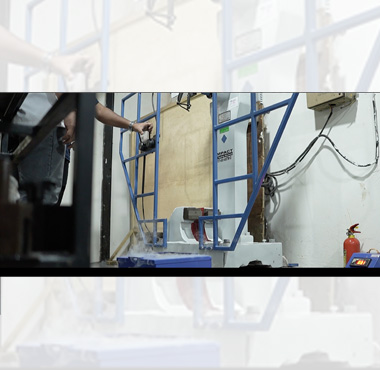
Charpy V-notch (CVN) Impact testing helps determine your material’s toughness and ductility at various operating temperatures. At VSP we can perform Charpy testing to determine how your material will perform under these various circumstances. Charpy test results tell you the amount of energy your metal absorbs during fracture.
During the Charpy impact test, a calibrated pendulum swings from a set height and strikes a machined material sample, breaking it. The energy transferred to the material can be inferred by comparing the difference in the height of the hammer before and after the fracture (energy absorbed by the fracture event).
Material samples are precisely machined before testing and we conduct impact tests as per ASTM E23 as well as ISO 148 on calibrated machine of Capacity 400 J at various temperatures ranging from ambient to Sub Zero (minus 196 Degree Celsius) to test the material’s performance under extreme conditions. We also have furnace capabilities to provide elevated temperature conditions.

Charpy Impact Testing Laboratory Standards
AT VSP the Charpy V-notch impact tests are performed to common international standards such as
♦ ASTM E23
♦ ISO-148
♦ ASTM-370
State of the Art Equipment:
♦ We continually invest in the latest technologies available for our services. With our state-of-the-art Best in class 400 JOULES testing machine with a resolution of 0.1 VSP becomes one of the very few laboratories commercial metallurgical testing houses in the country to have this facility. The Machine is calibrated as per ASTM E23 and ISO 148. Indirect Verification is successfully done by NIST USA specimen.
Sub-Zero Temperature Bath:
♦ The Sub-Zero Temperature Bath is one of the newest additions to our equipment collection. This bath plays a vital role in controlling the temperature, a key factor in testing the impact strength of specimens. It offers precise temperature regulation, maintaining an accuracy of within 1°C, ensuring that the desired temperature is upheld for the specimens. This makes it especially valuable for low-temperature impact testing laboratory services.
Significance of Temperature in Impact Toughness Testing:
♦ Steel's toughness diminishes at lower temperatures, making it essential to test at temperatures that simulate real service conditions. Accurate temperature control during testing is crucial to obtaining reliable results. This bath, by precisely regulating temperature, ensures that the test results are more accurate and reflect the material's performance under actual conditions.